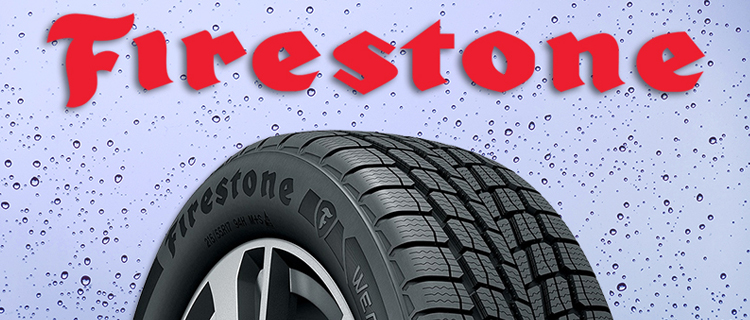Top Firestone All Weather Tires for Q4 2020
December 2, 2020
Tires

Today’s post explains the differences between Firestone all-weather tires and all-season alternatives, then spotlights the top Firestone all-weather tire option for Canadians in Q4 2020. Read on or contact your local TIRECRAFT for personalized advice.
Firestone All-Weather Tires Vs. All-Season Alternatives
Firestone offers quality tires in both categories, so which option is best for you?
There may be no “universal answer,” but understanding the difference between Firestone all-weather tires and all-seasons makes it much easier to identify what’s best for your needs.
All-seasons are more accurately described as “three-season” or “most-weather” tires, whereas Firestone’s all-weather tires perform well in both summer and winter seasons. As such, Firestone all-weather tires can potentially save you thousands of dollars in tire changeover and storage hassles, if you live somewhere where all-seasons won’t do.
These claims are borne out by several studies and winter driving tests. For instance, in a seminalstudy, researchers found that all-weather tires, on average, stopped 77 centimeters sooner on wet pavement at speeds of 70 km/hour, and 33 centimeters sooner on dry pavement at speeds of 90 km/hour, compared to standard “three-season” tires. Moreover, in slush straight-line tests, professional drivers rated all-weather tires 4.3 out of 5 stars on average, compared to 2.4 out of 5 stars for all-seasons.
Firestone all-weather tires work year-round in most winter conditions thanks to:
- Increased sipe density on inside treads; lower sipe density on outside treads
- Snow claws to increase snow traction
- Increased block rigidity
- Slush grooves
- Increased stability
- Unique all-weather rubber composition
Of course, winter tires work best in ice and snow, but nothing beats Firestone all-weather tires in terms of all-seasons performance and tire changeover savings.
At this point, you might be wondering why anyone would opt for all-seasons over Firestone all-weather tires. After all, there’s very little downside, and plenty of savings to be had. But you should know that all-weather tire compositions, which are specially designed to withstand a wide range of temperatures, don’t typically provide the same tread life as all-seasons or winter tires. In other words, they tend to wear faster, and often have shorter tread life warranties (although the TIRECRAFT Advantage Plus Program often more than makes up for that). Thus, if you’re riding on Firestone all-weather tires year-round, you’ll probably need to replace your tires sooner than you would otherwise, which can be a big factor in your decision.
Clearly, there’s a lot of variables to consider, but don’t despair: your local TIRECRAFT representative is happy to help, free of charge. We offer a huge range of all-weather, winter, and all-season tires, including all the top Firestone products, and we can work with almost any tire budget.
Firestone All-Weather Tires for Q4 2020: Introducing WeatherGrip
If you need tires that can handle all-weather conditions, Firestone WeatherGrip touring tires are a natural choice for Q4 2020.
Top features include:
- 3-Peak Mountain Snowflake-certified
- Designed specifically for your car, minivan, or CUV
- Long-lasting performance, backed by a 105,000km limited warranty
- 90-day “Buy and Try” guarantee for drivers who aren’t completely satisfied
- Open shoulder slots for enhanced water evacuation from contact patch
- 3D full-depth sipes on all ribes for even wear throughout the tire’s mileage warranty period
- Snow Traction Claw technology on center and shoulders blocks
For full details on these all-weather performance features, or brand-versus-brand comparisons with the top all-weather tires on the market, contact your local TIRECRAFT tire center for a free consultation.
Back

